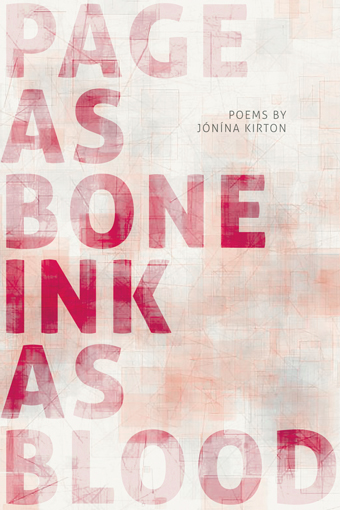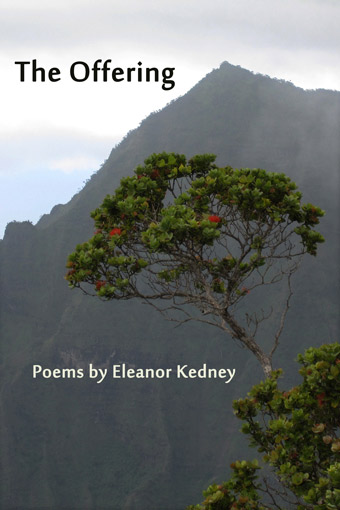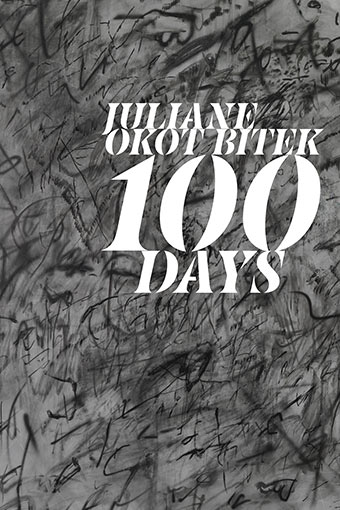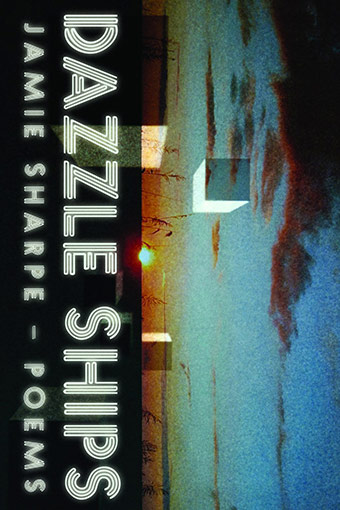Re- View #5: All Violet
Rani Rivera (May 7, 1981 — August 3, 2016)
Caitlin Press, 2017
Jami Macarty & Nicholas Hauck
Advisory Board & Editors
Jami: Happy February! Here we go into our fifth Re- in The Maynard’s Views Series of interviews and reviews. The Series’ reviewed titles, which started with Page As Bone Ink As Blood by Jónína Kirton, and moved onto The Offering by Eleanor Kedney, 100 Days by Juliane Okot Bitek, and Dazzle Ships by Jamie Sharpe, now continues with All Violet by the late Rani Rivera.
Now that we’re five books into the series, I see a trend toward my selecting books containing a willingness to take risks and an odd sensibility; books that take poetry to the brink, in one way or the other, without apology or retrospection.
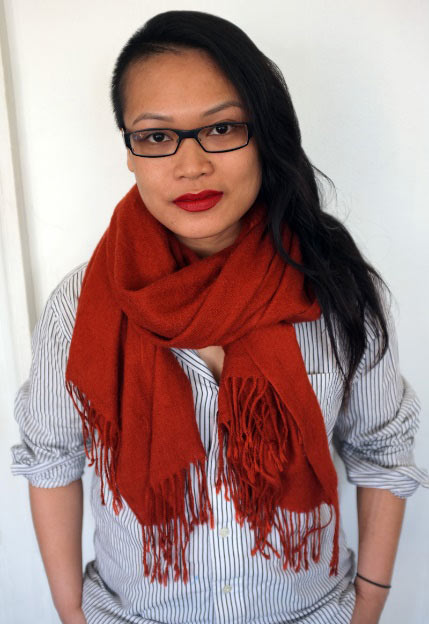
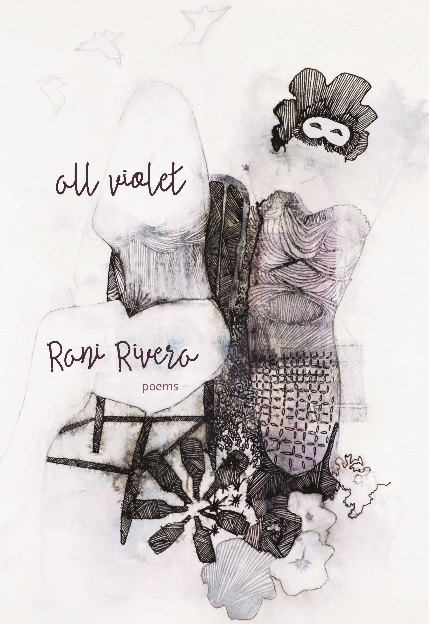
Nick: Five great choices. Thanks, Jami! And definitely, I see an unapologetic sensibility running through the books we’ve had the joy of reading and talking about together. Reading Rani Rivera’s (her photo above by Seth Blender) posthumous collection All Violet, I am immediately taken in by and appreciate the visceral, raw, and unpolished feel of the poems. This is “[n]ot the language of worn-out/ brigands and the bottlenecked/ highways of the disengaged” (“Waiting Room/Personality Crisis,” 77). The voice is as tough as it is sweet, and poems burst with real world insights, “like piñatas knowing they’re going to get hit,/ breaking into candy and pavement” (“Ghost Notes,” 73). As a reader of this collection, I often feel like the piñata.
 Jami: I concur—visceral and raw are these poems. That’s what I admire about them. That, and their candor. You have me thinking about “unpolished.” These poems aren’t dull; they shine “pretty/with their ugliness” (“For an Hour or Always,” 81). Somewhat unrefined, even tame in style, the poems rarely stray from left-justified, columnar form or line breaks made on clauses, prepositional phrases, and other parts of sentences. The poems are, at times, vulgar and rough, perhaps specifically in their accounts of sex acts and drug use. That’s probably exactly true to the actions about which Rivera writes. The poems are also sophisticated and cultured, offering a speaker/narrator who reads French poetry (Surrealist Apollinaire, Decadent Five Movement, Verlaine), and psychoanalysis (Lacan), and who listens to Avant-guard musicians (Lou Reed, Iggy Pop, Tom Waits). This poet directly addresses the beauty culture as she writes to Elizabeth Bath, a 16th century Hungarian serial murderer, purported to have over 650 victims: “But I question your choice of victims./ Does peasant stock really make for heartier brew?” (“Elizabeth Bath(ory),” 18). This, among other poems, reveals Rivera’s feminist sensibilities, social consciousness, and art activism. There’s no mistaking her rawness for a lack of erudition. The mysteriously titled “Quartan” (34), which is a strain of malaria, has an epigraph by American conceptual artist and collagist, Barbara Kruger, who addresses cultural conceptions of power, identity, and sexuality. And, so, “unpolished,” according to whom or what criteria? Are you saying they could have used more editing?
Jami: I concur—visceral and raw are these poems. That’s what I admire about them. That, and their candor. You have me thinking about “unpolished.” These poems aren’t dull; they shine “pretty/with their ugliness” (“For an Hour or Always,” 81). Somewhat unrefined, even tame in style, the poems rarely stray from left-justified, columnar form or line breaks made on clauses, prepositional phrases, and other parts of sentences. The poems are, at times, vulgar and rough, perhaps specifically in their accounts of sex acts and drug use. That’s probably exactly true to the actions about which Rivera writes. The poems are also sophisticated and cultured, offering a speaker/narrator who reads French poetry (Surrealist Apollinaire, Decadent Five Movement, Verlaine), and psychoanalysis (Lacan), and who listens to Avant-guard musicians (Lou Reed, Iggy Pop, Tom Waits). This poet directly addresses the beauty culture as she writes to Elizabeth Bath, a 16th century Hungarian serial murderer, purported to have over 650 victims: “But I question your choice of victims./ Does peasant stock really make for heartier brew?” (“Elizabeth Bath(ory),” 18). This, among other poems, reveals Rivera’s feminist sensibilities, social consciousness, and art activism. There’s no mistaking her rawness for a lack of erudition. The mysteriously titled “Quartan” (34), which is a strain of malaria, has an epigraph by American conceptual artist and collagist, Barbara Kruger, who addresses cultural conceptions of power, identity, and sexuality. And, so, “unpolished,” according to whom or what criteria? Are you saying they could have used more editing?
Nick: Even if I were able to, I don’t think it’s my place to say whether or not the poems could have used more editing. When I say “unpolished” it speaks to the other descriptors I use (visceral, raw), in the sense that these poems don’t feel packaged for an ideal public. Which gets back to your comment about pushing limits. There are a couple of ways we could talk about this potent impression. One would be to consider how the poems were discovered among Rivera’s papers after her death; the poet’s editing work was definitively abbreviated. This may influence my sense of unfinished-ness in some of the poems.
Jami: I don’t think we can say for sure that the poet’s editing work was abbreviated—at least not “definitively” because we don’t know if Rivera was actively revising these poems. If we pursue this line of inquiry, we’re calling to the fore Rani Rivera’s intentions for her poems, asking questions probably not answerable from the text in hand. That said, one answer comes from the book’s Acknowledgments, where we learn that “friends and fellow students from the English Literature Programme… at the University of Toronto… critiqued an earlier version of this manuscript.” I suppose then, that if Rivera organized a manuscript, she was interested in publishing. Further information as to whether or not Rivera was actively editing and revising is not provided. Instead, we know she “squirreled away” a “trove of poems.” In fact, we know far less about Rivera’s process than we know of her many editors and the multilayered editing process her poems apparently underwent. And, “unfinishedness” brings up the question: how do we know when a poem’s “finished”? Who decides—author, editor, reader, grim reaper?
Nick: I’m not concerned with when or even if a poem is finished. I’m intrigued by the publication process, and by the responsibilities and choices made by all those involved. Generally, this is something that interests me, and with All Violet there’s so much more at stake. So, along with my initial impressions of the bold, bare voice in these poems, I cannot help but consider the genesis and publication process of All Violet. I think the presentation and organisation of the book wants us to, for better or worse. I don’t want to discredit the importance of acknowledging the folks who made publication possible, nor do I mean to be insensitive. But it seemed heavy-handed and made me think about the delicate and challenging work that went into each step of the book’s publication. This says more about me as a reader than it does about the poems, but it also opens up an interesting and important conversation about the role of paratexts and editorial decisions. I would say that such a conversation is more important with posthumous publications like this one.
Jami: Right, the fact that this is a posthumous publication creates ethical concerns on both sides—editorial and reviewer. The disclosures in the Acknowledgements open the door for further inquiry. From the Acknowledgements we learn Jim Johnstone “edited and arranged”; fellow students at the University of Toronto “encouraged and critiqued”; Christen Thomas and Lo Bil offered “close-reading and suggested changes.” Those many minds editing the poems spark some anxiety in me. I trust all readers and editors had good intentions. What I worry about is their biases. None of us can read or edit absent of them. I share your interest in the details of the editorial process. At base, I’d like to read the poems as bequeathed by Ravi Rivera, before anyone changed them. I’m interested in my own suspicion that some of the rawness—a virtue of the work in my mind—has been edited out. To what degree were the poems sanitized? Which were omitted? According to what criteria? Who’s agenda?
Nick: Right. Those are the questions underlying our conversation so far. I, like you, believe in the goodness of readers and editors. There were choices made, but the potential of “faux mahogany shelving” (“All Violet,” 10) haunts me. What is it that’s at stake? Some kind of authenticity? That word makes me uncomfortable too.
The dead artist, perhaps especially the dead woman artist, is no less vulnerable than when she was alive.
Jami: Rani Rivera’s wishes, intentions, and plans are at stake. Hers. Not anyone else’s. This calls to mind the literary history of dealing with posthumous papers. I’m thinking especially of Emily Dickinson and Sylvia Plath. Emily Dickinson exacted a promise from her sister Lavinia to burn her papers. As the world knows, Lavinia broke her promise. Sylvia Plath’s manuscript for Arial was completed as she intended and on her desk when she died. Ted Hughes edited and altered the manuscript considerably. The dead artist, perhaps especially the dead woman artist, is no less vulnerable than when she was alive.
Nick: Yes. Or maybe even more vulnerable? In the poems, the willingness for sincere directness is vulnerable, and now?
Jami: Now, we readers/ reviewers have to live with what is. Wow, I had no idea the book would lead us to this inquiry into the “legacy of poems.” This inquiry is part of a posthumous collection. And, it has added dimension to my reading and thinking about this collection. Choice—the poet’s, the editor’s, the reader’s, the reviewer’s—is always in question when preparing a manuscript for publication. What’s bothering me is that Rani didn’t get to make her own editorial choices, wasn’t a part of the editorial process… and that’s grief. From the poems, I sense she would have been an active, headstrong, determined, and honest participant. I wish, wish, wish she had been. I know we could follow this line of inquiry further. Would Rani want us to? As compelling as it is to us, and as much as I think we’re trying to stick up for her, I wonder. Let’s turn to Rani Rivera’s poems more intently and specifically.
Nick: Yes! The poems! Another more interesting way to appreciate the book’s roughness is in terms of the poems’ content. All Violet is a lyrical trip where the sublime highs of life loved coalesce with the abject.
Jami: “Trip” is a perfect word to describe the energy of these poems. Perhaps more than psychedelic, it’s technicolor, full of “striped pink and white argyle… and neon-orange” (“A Revised Suicide Note,” 84). For all the vibrancy in the poems, or perhaps counter to it, there’s a vein of betrayal and disappointment that runs through them. Betrayal of others, in which the speaker is also implicated:
Who was worse off and unattended
is still up for debate. We
ruined each other, beautifully.
(“Just Some of You I’ve Known,” 48) and betrayal of self:
Not as hard as when I look at you
and see my disappointments.
(“New,” 12).
Nick: In her poems, Rivera doesn’t endorse or romanticize struggle and addiction the way the trope of the poète maudit would. Instead, her use of language gives an unguarded account of experiences with Toronto’s marginalized communities: prostitutes and victims and perpetrators of sexual abuse, drug users and dealers, people coping (or not) with mental health issues, often spoken about intimately, sometimes lovingly, because they are the speaker’s friends (or at least acquaintances).
Jami: OK, if I agree with your assessment that Rivera doesn’t romanticize, I’m trying then to figure out what it is she’s doing with her references to counter culture. What do we call that? Punk Romanticism? Rom Grunge? Or, are the references akin to the proper name-dropping in the New York School poets’ work? Rivera’s poetry, like Frank O’Hara’s and others, is engaged with the worlds of music, art, and history. Certainly there’s a sense of a real person, speaking about real-life realities and influences in the poems. In fact, this is a speaker who seems, with some intensity, to dislike lying, liars, form over substance. I would say also that Rivera’s poems are compassionate, are an expression of compassion:
I love them
broken and beaten badly,
pock-marked and toothless,
spent and riddled with rue.
(“For an Hour or Always,” 79).
Nick: Your comparison to O’Hara and the NY School makes sense to me. In that work, as well as here in Rivera’s, the name- and reference-dropping reveal the writer’s affinities with and immersion in personal and public culture. Speaking of compassion and misrepresentation, the third section of the book, comprised of the 10-part long poem, “Just Some of You I’ve Known” (48-58), comes to mind. Here, we read a series of portraits, remembered encounters with lovers, and “the others in between, and before,/ then during” (“Just Some of You I’ve Known,” 48). The serial nature of this section doesn’t betray the personal intimacies the speaker shares with each person.
Jami: After reading the book a couple of times, the anomalous third section led me to consider the book’s structure. I sense the first section is made up of earlier work. Aside from that, the 10 poems in this first section focus on writing, recovery/relapse, and music. The second section is comprised of nine poems characterized loosely by the theme “searching”—for identity, power, sexuality, drugs, connection. The third section performs like gratitude; it looks backward and takes account. Leading us to the fourth and final section, which acts as The Fall, featuring both “ghost” and “suicide” notes. The last lines of the third section’s “Just Some of You I’ve Known,” (58) point to ending:
And I’m still unwrapping the contents
of another glassine bag
and falling
victim to its absurd ritual
of carving yet another life.
The last four lines of “Revised Suicide Note” (86) and the last four lines of collection leave us there:
Picking myself up
from the dirt and
reminding myself
people fall all the time.
Nick: What you say intrigues. Especially the fourth section as The Fall. In it, the poem “The Oldest Profession in the World” (62) lists eleven names along with date and cause of death. This is unlike the treatment of the people in the third section’s poem “Just Some of You I’ve Known,” who are presented with an almost tender humanity even if, for some, “there was a collision of sorts/ when I met you” (“Just Some of You I’ve Known,” 55) or “all our trips were a mistake./ You could not go on any more runs for ruin of us” (“Just Some of You I’ve Known,” 57).
Jami: Like you, I discovered parallels between “Just Some of You I’ve Known” (48-58) and “The Oldest Profession in the World” (62-63). The difference in treatment of the subjects, at least what I think you’re getting at, is palpable in “Just Some of You I’ve Known,” in that the speaker is speaking to intimates, to those, as the title gives us, she’s known. I sense less intimacy between speaker and those listed in “The Oldest Profession in the World&rdquo (63).; That poem spooks me. It suggests the writer’s sympathy and kinship, however distant, however close, to those on the morbid roster. In this sense, the poem feels like confession. It’s the last name on the list—
Jane Doe
January 2, 2001
Drug Overdose (Heroin, Cocaine, Crystal Meth, OyxContin, Mari-
Juana, Valium, Prozac, Zyban, Insulin)
that pulls my stomach to my throat. Is this Jane Doe synonymous with Rani Rivera? That’s how it feels; that Rivera is foreshadowing her death by overdose. That chills. Makes me hang my head in my hands.
Nick: O, wow. Me, too.
Jami: Slightly recovered, I continue. Together, “Just Some of You I’ve Known” (48-58) and “The Oldest Profession in the World” (62-63) seem to span Rivera’s private and public awareness and social conscience. Allow me to add a third poem to the mix: “For an Hour or Always” (79-83). For me, these three poems form a triad in the collection because they are List Poems, cataloguing and recording relationships, death, and love. “For an Hour or Always” (79) uses the anaphora “I love them” to build its all-inclusive treatise: “I love them hairy and unclean… // I love them mean.” (“For an Hour or Always,” 79). These are poems written by a poet with self-awareness, with compassion, humility, gratitude, and one perhaps taking account, as one does, to sooth herself alive or plan a suicide.
The way the poems infuse factual material with intimate witnessing is one of the collection’s most powerful aspects.
Nick: It’s a generous, affectionate poem that dismisses any form of judgement. By the end I feel that the title could be “For An Hour and Always.” “Waiting Room/Personality Crisis” blends litany with the lyrical, and “Apartment Hunting” borrows from the found poem genre but is lyrical, too. The way the poems infuse factual material with intimate witnessing is one of the collection’s most powerful aspects.
Jami: For me, the poems assert narrative more than lyric. Lyricism, when it appears, is in service of the narrative; all gestures—the self- and other- portraits, mise en scène, etc.—in the poems are made in service of narrative. “Held hostage by some kind of bureaucracy/ and hospital concern” (“Waiting Room/Personality Crisis,” 75) is at the center of the accretive power of narrative.
“I used to think
verandahs were a construct for contentment—
instead I’m here
extrapolating on the reversal of repute.”
– Rani Rivera
Nick: Interesting point. I’d like to hear more about how you see this captive center working with (or against?) narrative. You’ve also spurred me to think about the dynamic between lyricism and narrative, and who leads who, but that gets into slippery phenomenological territory. Eek! To stay on (slightly more) solid ground, we could talk about the work of time, which also caught my attention in these poems. The first poem opens with these lines: “I used to think/ verandahs were a construct for contentment—/ instead I’m here/ extrapolating on the reversal of repute” (“All Violet,” 10). The contrast between an assumed (domestic?) happiness in the past and thinking as undoing in the present sets the tone for the rest of the poems as adjusting chronicles. The declarative “instead I’m here” is eerie, knowing Rivera’s story.
Jami: Those opening lines are fantastic, affecting, and altering. Time in these poems is drug-induced, creating an all-time, no-time at once quality. “No amount of drugs/ could anticipate the reciprocity/ of time suspended” (“Just Some of You I’ve Known,” 48). It’s painful to witness the fall, even though/when you know how the story ends. While reading and rereading, I wanted to look away. To catch my breath. To take my mind elsewhere. But how could I, when this speaker is so vulnerable, willing to offer us herself full frontal? How could I, knowing only her poems, ever know her?
Nick: Right. And for me the exposure is heightened when it’s replayed in specific moments. In a way, I see the use of time in “Drag Queens With A Side of Mash” (31) referring back to the opening lines. The first stanza, set in the past, is cozy and playful. The second stanza addresses memory, in the present:
My memories are distilled
in a bottle of fine Russian vodka,
smooth to taste at first, then leaving
a dangerous bite in my palate,
whether it’s gulped down heartily in the Caucasus
or seeped in ennui with a tart lemon garnish.
The rest of the poem offers future projections, is clairvoyant. Are there other poems where you see time being worked with in this way? What do you think the futurity of the voice in some of the poems does to the work of memory/witnessing?
Jami: There’s this presence in the poems, a presence that’s “after the fact,” that’s looking back from the future into the past at events, their scars. Almost all of the poems recount: “I have scars, she said. And I” (“Immolation,” 13). One of the subjects around which the poems speak to the future is when speaking of death, suicide. In “Girl (Instrumental)” (22-24) the poem’s speaker imagines being zipped into a body bag:
the drugs work hard until they tire
I know my place, hate my face
I know how I begin and how I’ll end
strung-out again
please don’t let on that you knew me, when,
in an attempt not to leave out anybody,
I was tempted to leave out everybody
ease myself into a bodybag...
The use of the word “instrumental” with its double entendre—a means in pursuing an aim or a piece of music without words—in the title is a prime example of Rivera’s cleverness, irony, and wit. The poem is chock full of rhyme, and in some cases, iambic metrics, but this is a song with words. Those who use drugs are contributory. Still, the poem, leaves us with more questions: What, exactly is being pursued—a drug high, death? How are girls and women “instrumental”? And in what are they instrumental? Whatever the answers, this is their song.
Nick: Speaking of music and its references. There are a lot of fantastic pop culture references and pairings throughout All Violet. “[P]outine and Stendhal,” (“All Violet,” 10) and “a pair of Jackie O’s/ and a Pall Mall cigarette,” (“To Return To Heaven Like A Stain,” 60) are some of my favorites, along with nods to music and film. “A Perfect Night” reimagines Lou Reed’s “Perfect Day,” “Reeling in a certain sort of sorrow/ metamorphosed into song,” (“A Perfect Night,” 27). Here, Reed’s sardonic whimsy in the key of heroin becomes a coked-out nightmare “decorated with the requisite nostalgia/ infidelity instructs” (“A Perfect Night,” 28).
Jami: The references to Canadian culture, French literature, and 50s Pop, gives us an idea of Rivera’s interests and locate us in her world. Canadian culture because, well, Rivera’s Canadian; French literature and psychoanalysis because, perhaps, of the influence of her university studies; 50s Pop, especially the musicians because, I suppose, of their affiliations with counter culture and drugs use. But, that’s me, trying to figure to what sum the references add. Among other things here, there’s folly. I’m probably getting it and a lot of other stuff wrong anyway. At this moment, I’m rather worried about that.
Nick: Like you say, the cultural references help orient the reader, so I’m more interested in following these cues and imagining the potential connections and structures they create in the writer’s world and in All Violet. To return to “A Perfect Night” (28) for a moment, it’s the last poem in the first section of the book, ending on these lines: “Ready to leave/ a heart stricken,/ splayed anew,” (“A Perfect Night,” 28). Cultural jest is a marker, a threshold even. This brings up a couple of questions. First of all, in terms of tone and content, along with subtle humour these references are often playful and open. How does this change the way the heavier, perhaps more serious subjects are dealt with in the poems?
Jami: First, speaking of “heavier” I want to say a bit more about “bodybag,” itself, perhaps another double entendre. I’m remembering the “Ghost Notes” (72) lines:
It’s all morning and I’m alone again.
Brandi’s leaving me, and I can’t quit.
I bought her two bags Thursday night
(“Ghost Notes,” 72). Bags of drugs are also a “bodybag” of sorts or can lead to one. Second, your question has made me realize that I read all poems in All Violet at about the same register and as part of the scenes being recreated and peopled. That register is a mix of sarcasm, resignation, and depression with an every-once-in-a while sprinkle of levity. Often the levity comes when the poems turn reflexive and are aware they are writing about writing.
Nick: The first poem, “All Violet” (10-11), does exactly this, expanding awareness with a cynical take on literary society and its patrons. The last lines, “write a poem about love, jazz and Maurice, and how she’s/ so cute, I could eat her” (“All Violet,” 11), speaks to what we were getting at earlier: how digestible and forgiving—and also compromised—does poetry, and art in general, have to be to appeal to “a dark-chocolate-munching émigré of distinction…/ at yet another awards dinner” (“All Violet,” 11). But we’ve been there, so back to the poems. In the next piece, poetry leaves the book-critic’s circle for “a state of disrepair and bondage,/ irrevocably seduced by/ stanza after stanza” (“New,” 12). The power dynamic and poetry’s subjugation are shifted, if not inversed.
Jami: Yes, over and over again, the speaker lets the reader know that she knows writing’s a pretentious racket. She’s also aware of the double edge; after all, she’s the one doing the writing. Remember the opening line of “How Not to Become a Homicidal Lover” (45): “First and foremost, stop with the bad writing made of bad lighting.” There’s her sarcasm mixed with wit, and yet these poems are chock full of darknesses of all kinds.
Nick: The last poem, “A Revised Suicide Note” (84-86), despite its title, is lively and spirited like leaving “a copy of Bondage for Dummies, signed/ by Midori, fidgeting off my shelves” (85) for the cops to discover. It’s a clever poem, too, like how the lines:
sometimes I’m not so sure
if what I’ve said is true
to what I set out to be.
(86), reference the idea of revision in the title. So what’s being revised here in this poem, but also here, at the end of the collection as a whole?
Jami: The end at the end. I keep wondering what would be the affect if “A Revised Suicide Note” started the book. I think ending here tries for some levity, even transcendence:
Nevertheless, I keep doing it.
Perennially patching up the
latticework on my skin.
Picking myself up...
(86). But, this comes after we already know Rivera wasn’t able to pick herself up. So, the ending maybe tries for a cautionary note to readers, reminding them, and all of us, that “people fall all the time.”

